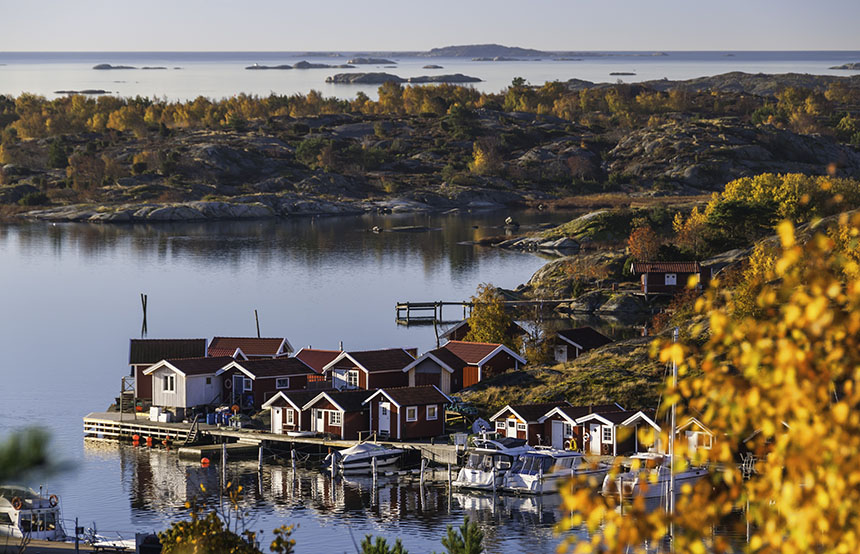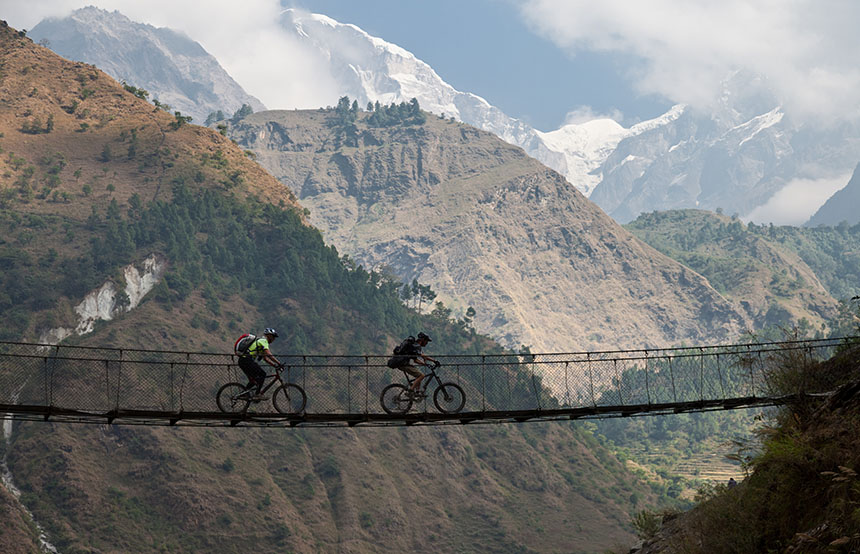Ecotourism isn’t a new concept. In fact, it has comfortably occupied a space in the Oxford English Dictionary since 1982. Yet it seems that it is only in the past ten years or so that it’s made its way to the tip of every traveller’s tongue. An antidote to the rash of resorts that have spread along previously undisturbed coastlines around the world, eco travel advocates for a more mindful approach to our favourite pastime – holidaying. Swapping long layovers for restful train journeys and high-rise hotels for secluded, locally owned lodges, ecotourism champions the idea of stepping off the beaten path and treading lightly onto unexplored new ones. While these initiatives start with us, it is continued through the work of governments, organisations and partnerships. So, in celebration of Earth Day 2024 and its very apt theme, Planet vs Plastics, we’ve decided it is the perfect opportunity to take a deep dive into the world’s best eco travel champions…
Botswana
As the world races towards a sustainable future, Africa’s emerging as the on-trend leader of the pack. In an attempt to halt plastic bags clogging up rivers and choking marine wildlife, over 100 countries now have a full or partial ban on plastic bags – and 34 of these are in Africa. Botswana, for instance, has introduced regulations to restrict the importation, production, sale and use of single-use plastic bags, which includes a fine if you’re caught red (or plastic) handed. To help promote these sustainable practices, you’re advised to skip the single-use and ditch the Ziplocs when visiting Botswana. But, plastic aside, it’s important to remember this Earth Day that simply turning up to Botswana aids sustainability. If tourists don’t visit their parks and conservancies, there’s a risk that local communities may choose to convert the land to agricultural use instead. This would reduce the available land for conservation efforts, impacting the animals' well-being. So, do yourself and Botswana a favour by visiting their stunning savannahs, equipped with reusable bags galore.
Sweden
Trust the Swedes to know a thing or two about sustainability. With their own ecotourism charter and label - which ensures all tours, their operators and the nation’s food comes sealed with a chef’s kiss of sustainability – Sweden tops pretty much every eco travel list. A glass half full kind of nation, it is no surprise that its second-largest city, Gothenburg, has been voted the world’s most sustainable destination for the past four years by the Global Destination Sustainability Index. With almost 65% of the city’s transport running on renewable energy, you can rest easy knowing that the airport shuttle and your hotel – if you choose to stay at Gothia Towers – are fuelled entirely by renewable energy and wind power. The real clincher however is allemansrätt. Meaning the ‘freedom to roam’, it decrees that all people have the right to walk, cycle, ride, ski, camp and pick berries anywhere in the country. Talk about a sustainability smorgasbord…

Costa Rica
When it comes to eco travel, there is just no stopping Costa Rica. Even during the middle of the 2020 lockdown, the country announced its 30th national park – which, when you consider the size of the country (just 19,730 sq. miles), is a pretty impressive feat. Devoting 26% of its terrain to wildlife preserves and protected land, including the mind boggling Monteverde Cloud Forest Reserve (which boasts six different ecological zones), Costa Rica is the original ecotourism aficionado. From its Sustainable Tourism Certification (which spearheaded the international trend), renowned eco lodge collection and emphasis on unfiltered eco-activities (think guided hikes through rainforests and whale watching excursions where humpbacks and their migration patterns are the stars of the show), it’s clear that Costa Rica has no plans to lose its 6% of the world’s biodiversity. They are also leading the pack on the anti-plastic brigade, as they have been gradually phasing out single-use plastics since 2017. We could certainly all learn a thing or two about conservation from Costa Rica.
Palau, Micronesia
In Palau, an archipelago of over 500 islands in the western Pacific Ocean, eco travel has taken like a duck to water – glinting gin-clear water that is. Despite having a population of just 18,000, Palau has proven itself to be more than mighty. The first nation to change its immigration laws for the eco cause, it decrees that all tourists sign a passport pledge to ‘tread lightly, act kindly and explore mindfully’ for the sake of future generations. And while you probably don’t need any more encouragement to book a one-way ticket to these idyllic islands – did we mention it’s known as ‘The Underwater Serengeti’ – you’ll be pleased as punch to know that it was also the creator of the world’s first national shark sanctuary (ending all commercial shark fishing in its waters), and the first to ban bottom trawling. If that’s not an eco-champion, we don’t know what is.
Panauti, Nepal
Earth Day serves as an annual reminder to take stock of our surroundings, challenge our thinking and create sustainable environmental change. In Panauti, no such day is needed to inspire eco action. Just 20 miles from Nepal’s capital Kathmandu, this unassuming town has become a shining example of community-based tourism. A homestay hotspot since 2013 – thanks to just two local women who spearheaded the town’s hospitality campaign – it has become an olive branch for more than 20 more Nepalese women. Encouraging them to step out of their kitchens to welcome in passing travellers, it has proven an invaluable project to educate the town’s future community leaders and relieve Kathmandu of its overtourism. Plus, where else are you going to gain more meaningful and textured insight into local Newari culture than on a hand-loomed blanket-strewn sofa (complete with a steaming hot bowl of Dal Bhat) in a traditional Nepalese home?

Slovenia
Green may not be the national colour of Slovenia, but whichever way you turn, whether it be towards the soaring peaks of the Julian Alps or the emerald-green lake of Bled and Triglav National Park, you’ll see it. With almost 60% of the pint-sized country covered in bottle-green forest, it’s not surprising that eco travel and tourism have called shotgun in Slovenia for almost a decade. Placing communities over consumerism, and quality over quantity, it has found itself winner of the ‘Best of Europe’ award at the 2020 Sustainable Destination Awards as well as the fifth destination in Lonely Planet’s 2022 Best Country list. But what makes it a worthy eco-champion you ask? Its green scheme. Like Costa Rica, Slovenia has employed a stamp of approval to everything that fits its green criteria, from destinations and restaurants, to accommodation and beaches. It has also, in a bid to reduce the amount of foreign feet on its holy ground, recently rolled out a ‘Bike Slovenia Green Route’. Starting high in the Julian Alps before hurtling down past lakes and wine regions, all the way to the Adriatic Coast, it does beg the question on this Earth Day: who needs a road trip when you’ve got a ride trip?
Written by Naomi Pike













